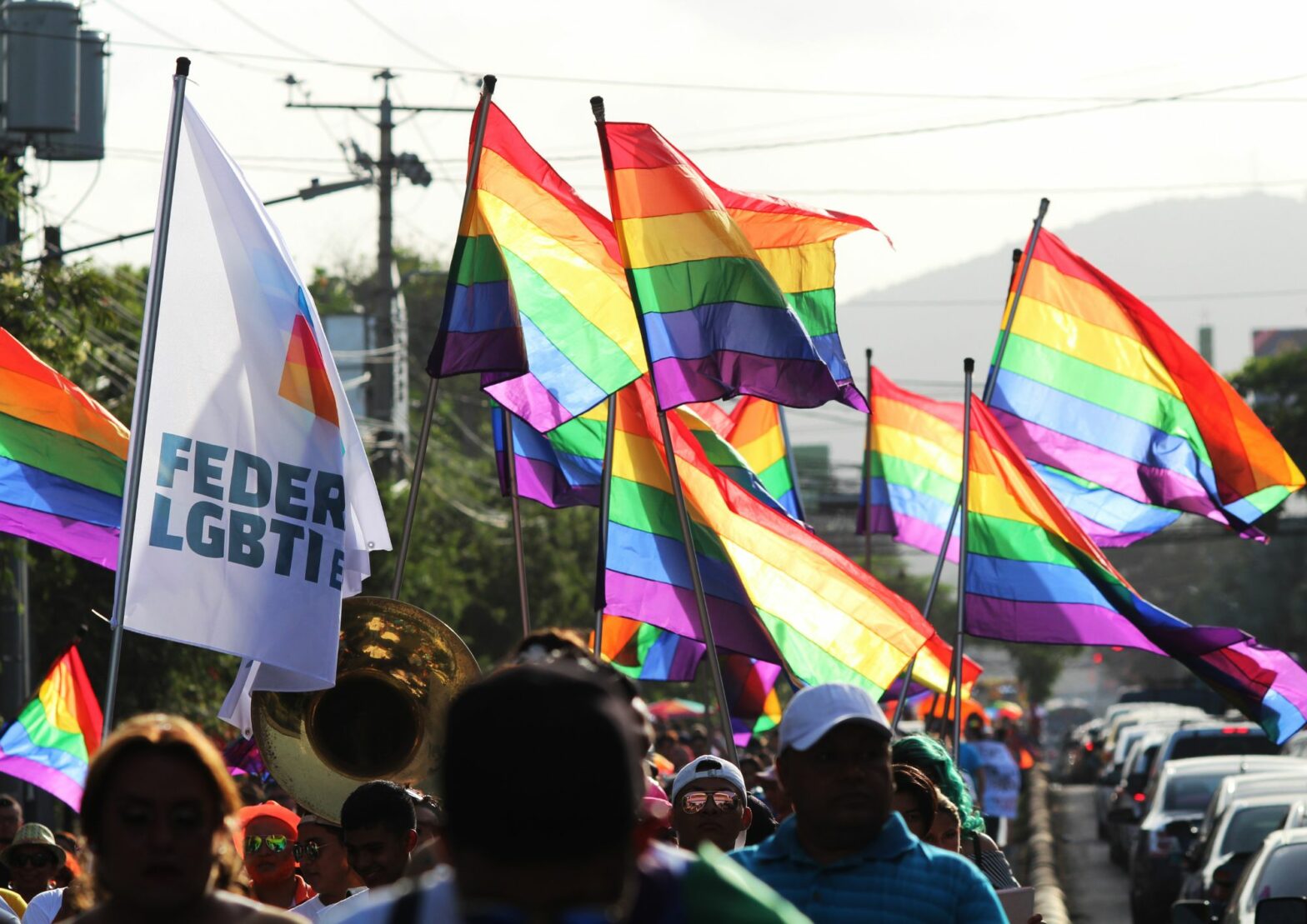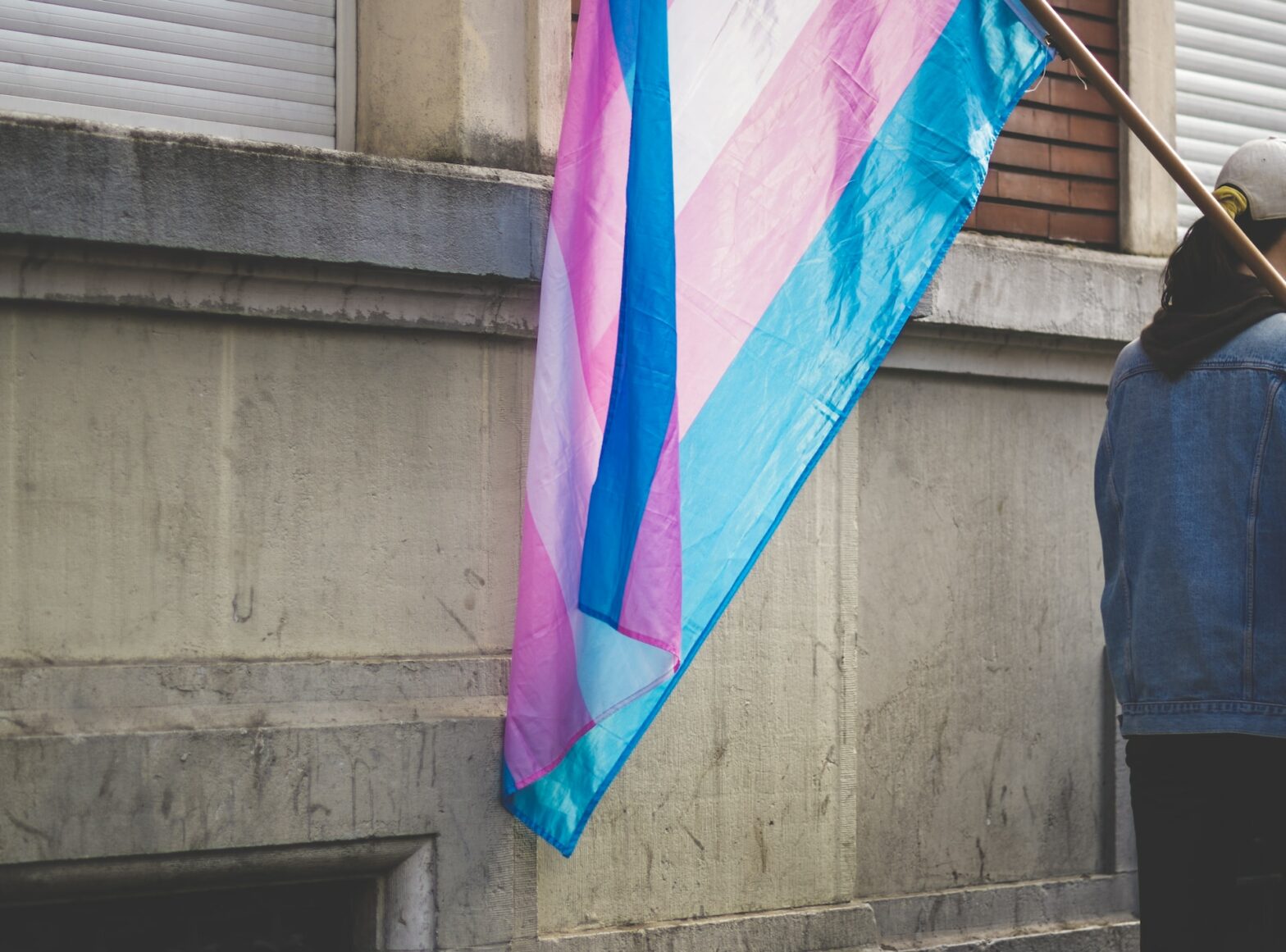Share Twitter Facebook Email Copy URL
“Give me your tired, your poor / Your huddled masses yearning to breathe free…” says a plaque on the Statue of Liberty in New York. Since its founding, the United States has welcomed immigrants and has granted them citizenship. Their children born on American soil automatically become US nationals. The current US administration is trying to overturn this proud tradition.
Being born in the United States has long come with the guarantee of automatic US citizenship. Since the passage of the Fourteenth Amendment to the US Constitution in 1868, birthright citizenship has served as a cornerstone of American national identity, and a touchstone of fundamental human rights in the United States. But American democracy is deteriorating. Donald Trump, the current President, argues that the United States should discriminate in its guarantee of birthright citizenship. Indeed, Mr. Trump and his appointees want to reinterpret the birthright citizenship so it excludes children of irregular migrants. The rise of this restrictive view of American identity and fundamental rights makes it necessary to consider the severe consequences that would follow such a drastic reinterpretation of the Fourteenth Amendment.
In 2020, the nonpartisan Center for Migration Studies (CMS) estimated that just over 200,000 people in the United States may be stateless or are at risk of becoming so. This is much higher than the UN Refugee Agency’s (UNHCR) estimate of a few thousand stateless persons. Why the difference?
The CMS uses a sophisticated statistical model, and awareness of statelessness has risen, in part because of IBelong, the UNHCR’s global campaign to end statelessness. The foreign-born population in the United States is very diverse, and the country may be home to many more resident stateless migrants from the Middle East, Africa and Asia than previously thought. The unauthorized stateless population experiences a particularly intense form of vulnerability. In 2013, a proposal to create a mechanism to protect this vulnerable group nearly passed into law. But in terms of history the situation was a very different one from the current one.
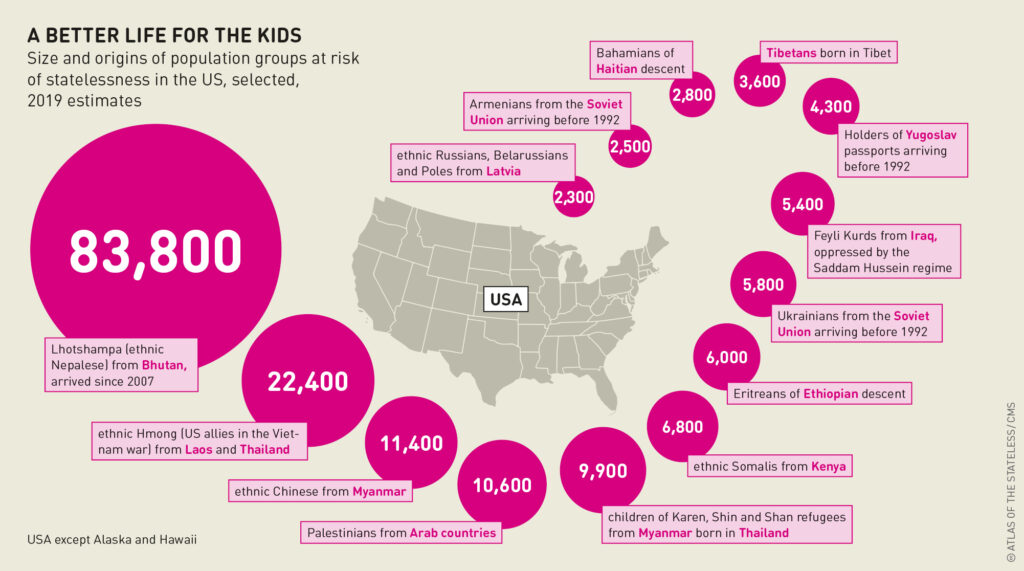
in the US may be affected
by restrictions on citizenship
Whatever the exact size of the stateless population, birthright citizenship has contributed to limit the legal limbo of statelessness. Indeed, the robust jus soli (birthright citizenship) regime has provided a perfect guarantee that statelessness cannot be reproduced in the United States. For example, Kuwaiti Bidoons (a group that lacks a nationality in their homeland) who fled the first Gulf War to the United States can count on US citizenship for their children who are born there. Those children would otherwise be stateless. Nationals of some countries cannot transmit their own nationality to children who are born abroad. But if those children are born in the United States, they automatically gain American citizenship.
The Bahamas is perhaps the most pressing example of this phenomenon in the Western hemisphere: Bahamian women are not permitted to pass their nationality to children born abroad. In Haiti and some other Western hemisphere countries, crumbling birth-registration systems make it difficult to substantiate nationality claims for children who are born abroad. Taking these cases into consideration, the potential problem of US statelessness may be ten times larger.
The Trump administration is transforming its rhetoric on restricting immigration into reality. Large numbers of people from the Muslim world have been banned from entering the United States. The wall along the US–Mexico border is growing. This is especially true because of the conservative majority of justices who serve for life in the Supreme Court. On the eve of Mr. Trump’s election as President, the Congressional Research Service issued a paper that elevated the “consensual approach” to the citizenship clause of the Fourteenth Amendment; this would limit birthright citizenship to those who owe an undivided allegiance to the United States. Such an interpretation could certainly be used to exclude the children of migrants from birthright citizenship.
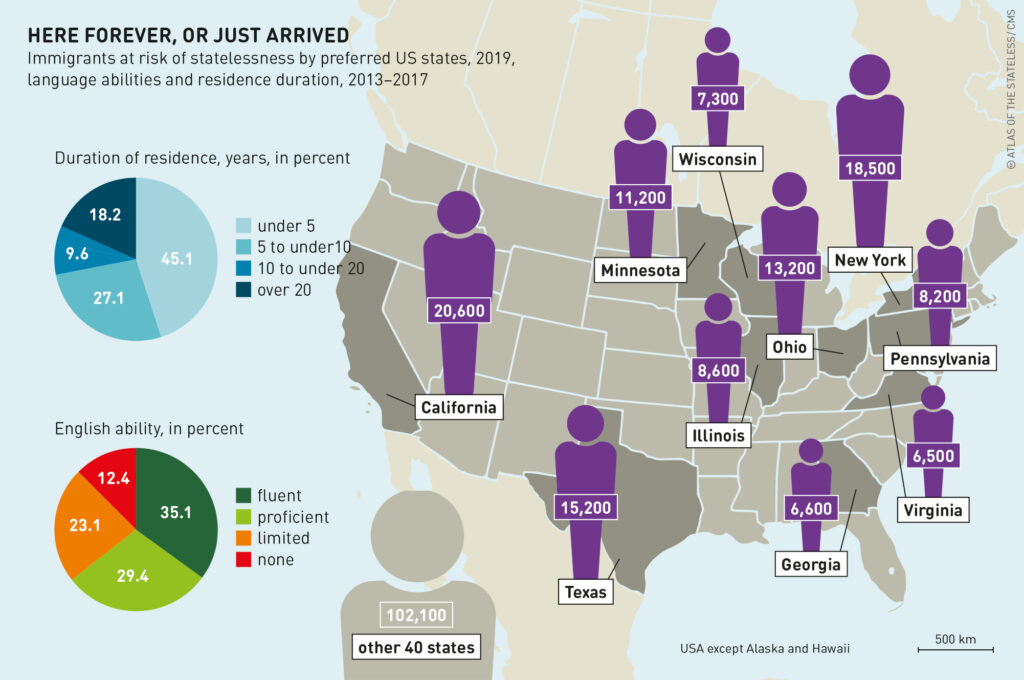
Texas, is still a preferred destination for
many immigrants. Many learn English quickly
The United States currently has a minor statelessness problem, in large part because of the longstanding rule of birthright citizenship. But the issue is now more visible than ever. The threat to birthright citizenship is very real, and hundreds of thousands, perhaps millions, of US residents may be affected.
Efforts by the Trump administration to promote denaturalization (the Department of Justice) and to impose passport restrictions on people born on the southern border (Department of State) suggests a willingness to use citizenship as a weapon to advance Mr. Trump’s view of national security. His travel ban was recently expanded to prevent immigration from regions he considers undesirable. This suggests that his concept of national security is influenced by racial and religious dogma – the root of virtually every statelessness crisis throughout history.
This contribution is licensed under the following copyright licence: CC-BY 4.0
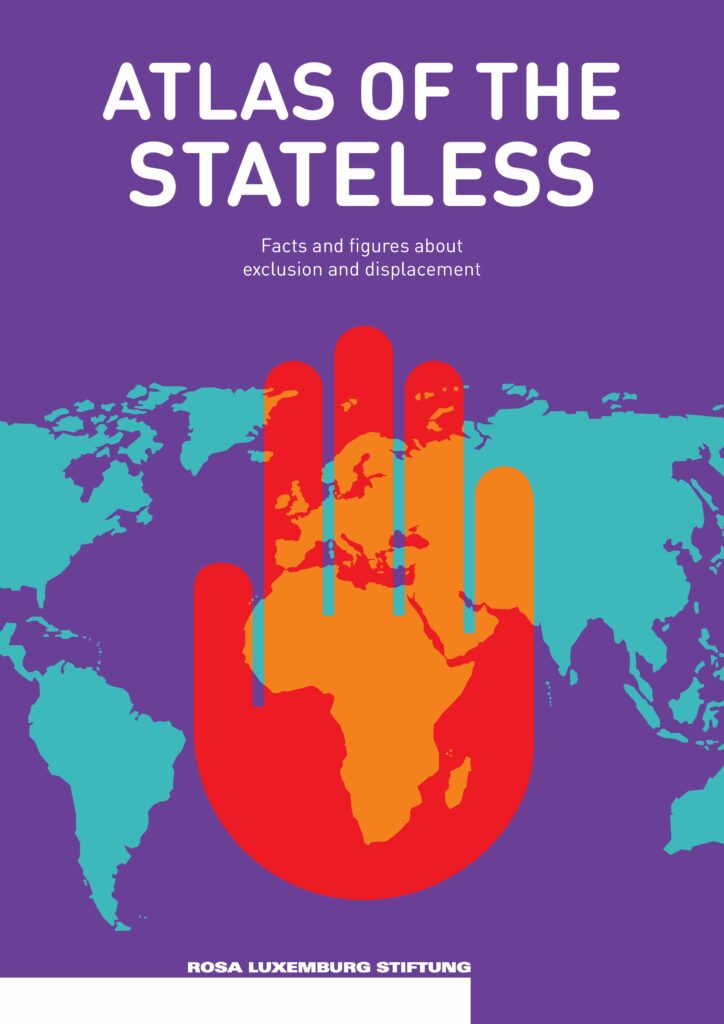
The article was published in the Atlas of the Stateless in English, French, and German.
